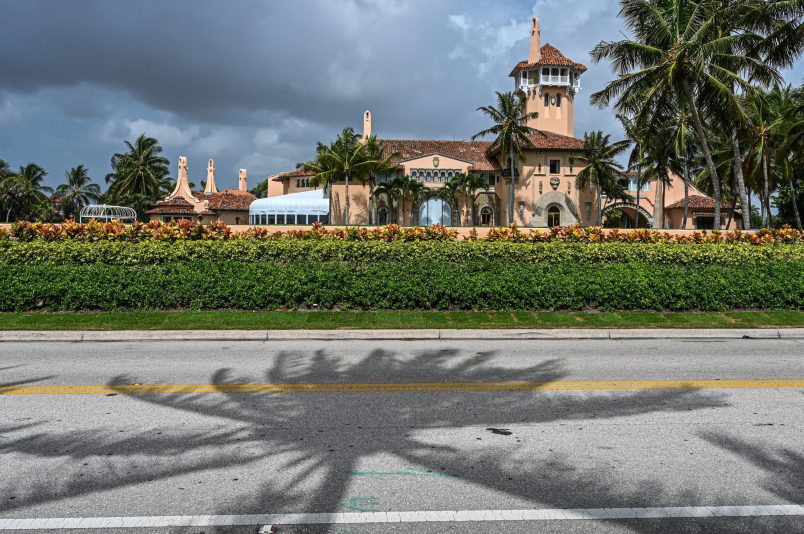Releasing supporting materials that convinced a judge to allow a search warrant to be executed on Mar-a-Lago last week would imperil multiple witnesses and the DOJ’s investigation, federal prosecutors said on Monday.
Prosecutors wrote that releasing a copy of the affidavit would “chill future cooperation by witnesses whose assistance may be sought as this investigation progresses, as well as in other high-profile investigations.”
Federal prosecutors file affidavits under seal to persuade judges to issue search warrants. The document typically contains a statement from an investigating FBI agent giving an overview of the case, including information uncovered from the investigation, identities of witnesses, and the direction the probe may take.
“The affidavit would serve as a roadmap to the government’s ongoing investigation, providing specific details about its direction and likely course,” prosecutors wrote in the filing.
The DOJ made the statement as part of a broader argument in favor of unsealing a limited set of filings that include the cover sheet of the warrant application, the DOJ’s motion to seal the warrant filings, and the court’s order to seal those records.
It came after multiple press and advocacy organizations asked South Florida Magistrate Judge Bruce Reinhart to unseal the affidavit and other materials.
After Trump refused to release copies of the search warrant and inventory of seized items that his attorneys received after the FBI visit last week, Attorney General Merrick Garland gave a statement that the DOJ would push for their release.
Trump, continuing to withhold those records himself, did not object. The search warrant and inventory were released on Friday.
In the Monday filing, prosecutors wrote that disclosure of the warrant’s supporting materials would harm witnesses in particular — both current and future.
“Information about witnesses is particularly sensitive given the high-profile nature of this
matter and the risk that the revelation of witness identities would impact their willingness to cooperate with the investigation,” prosecutors wrote.
The DOJ cited recent reporting about “threats made against law enforcement personnel in the wake of the August 8 search” as reason to keep the identities of witnesses under wraps.
The same officials who signed the motion to unseal the search warrant — Counterintelligence and Export Control Section chief Jay Bratt and U.S. Attorney for the Southern District of Florida Juan Antonio Gonzalez — signed the document.
Read the filing here:



